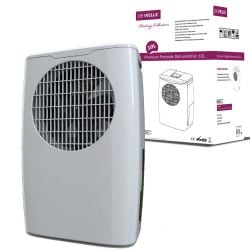Home Décor, Bathroom & Plumbing
Dehumidifiers vs. Air Purifiers: Understanding the Differences
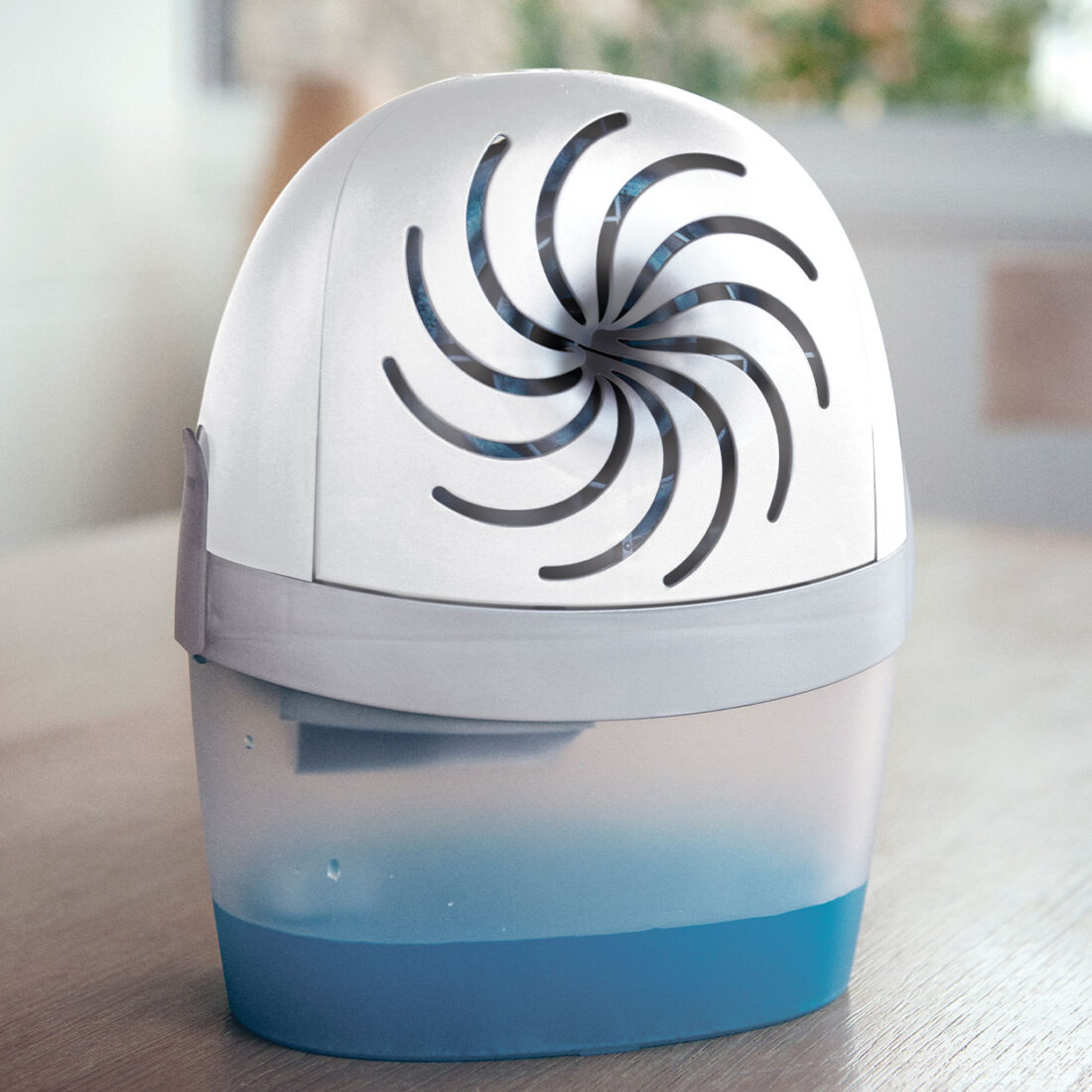
Both dehumidifiers and air purifiers have a common goal; improving the air quality of your home. Good indoor air quality is so important for a number of reasons. It improves our health, increases our comfort and can enhance productivity, as a clean workspace is a productive one! Although dehumidifiers and air purifiers share the same objective, they have different functions in our home. Dehumidifiers aim to remove moisture, while air purifiers work to reduce pollutants from the air we breath. Keep reading as we break down the differences with each and help you decide which is right from your home!
Understanding Dehumidifiers - Moist Warriors
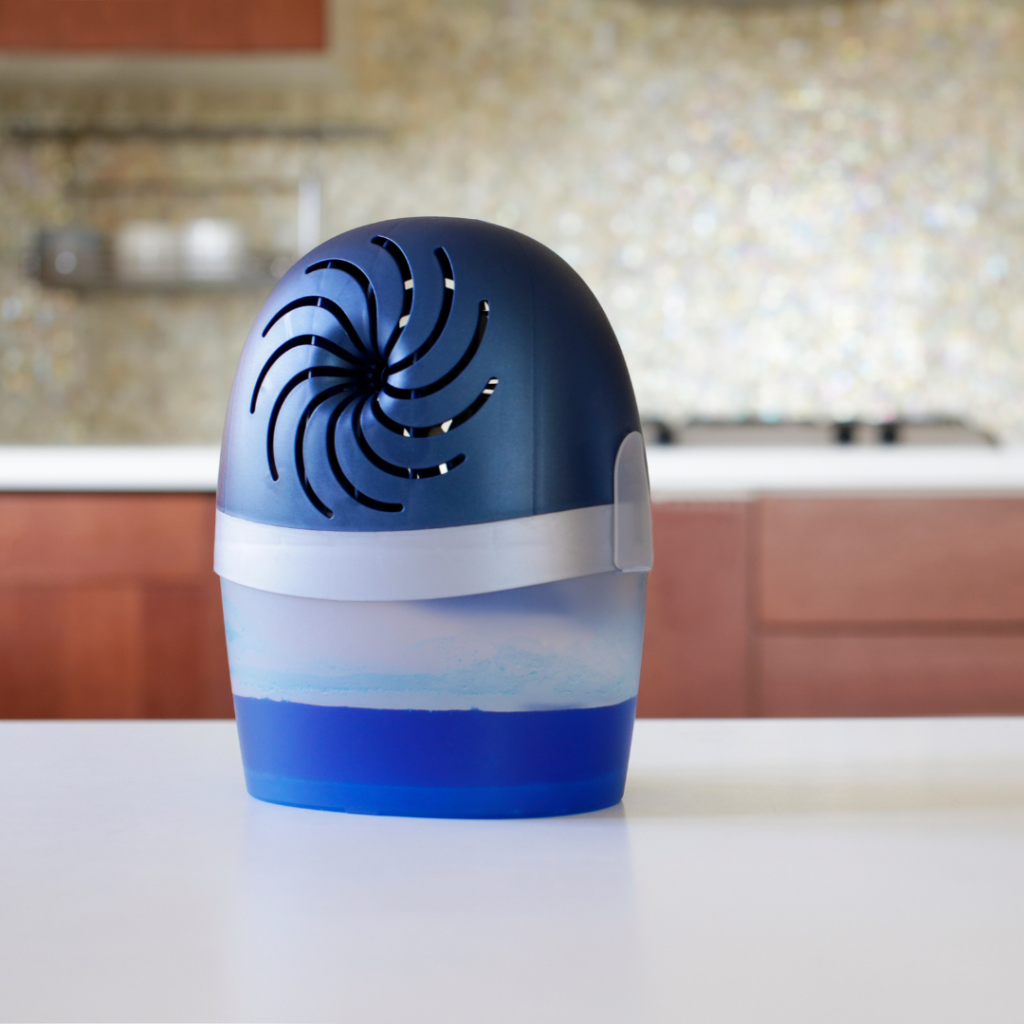
Humidity, which refers to the amount of water vapor in the air, can significantly impact the quality of the air in which we breathe. High humidity can create a breeding ground for mould and mildew that can trigger allergies, asthma and respiratory problems.
Dehumidifiers as a moisture-absorbing machine to help combat excess humidity in your home. It's primary function is removing unnecessary moisture from the air. They do this by lowering the relative humidity which is the percentage of water vapour in the air compared to the maximum amount it can hold at that temperature.
You might be wondering how does a dehumidifier work? This De Vielle dehumidifier works in the same way our fridges do at home. It uses a compressor and a coolant to condense moisture from the air. The warm moist air passes over cool evaporator coils, causing water to condense and collect in a tank. The cooled, dry air is then circulated back into the room. It works well in larger spaces.
Benefits of Using Dehumidifiers
Improved sleep quality: Humid air can disrupt our sleep, causing us to feel less rested and tired the following day. A comfortable humidity level can promote deeper, more restful sleep.
Protects your home: High humidity can damage materials such as wood and plaster. Dehumidifiers help prevent warping, peeling and rot.
Prevents odors: Musty smells often come hand in hand with high humidity. Dehumidifiers can eliminate them from your home.
Air Purifiers: The Contaminant Conquerors
Unfortunately, the air in your home isn't always as clean as one might think! Many common indoor pollutants can lurk within your walls and around the house, having negative effects on your health and well-being. We've listed some everyday contaminants below that an air purifier can help you solve!
Dust mites: They are microscopic creatures that shed allergens, causing allergies and asthma. HEPA filters in air purifiers trap these effectively.
Pet dander: Tiny skin flakes shed by animals are another common allergy trigger. Capture them before they can be inhaled with an air purifier.
Mold spores: Can contribute to respiratory problems and irritate your skin. Air purifiers can reduce their presence in the air.

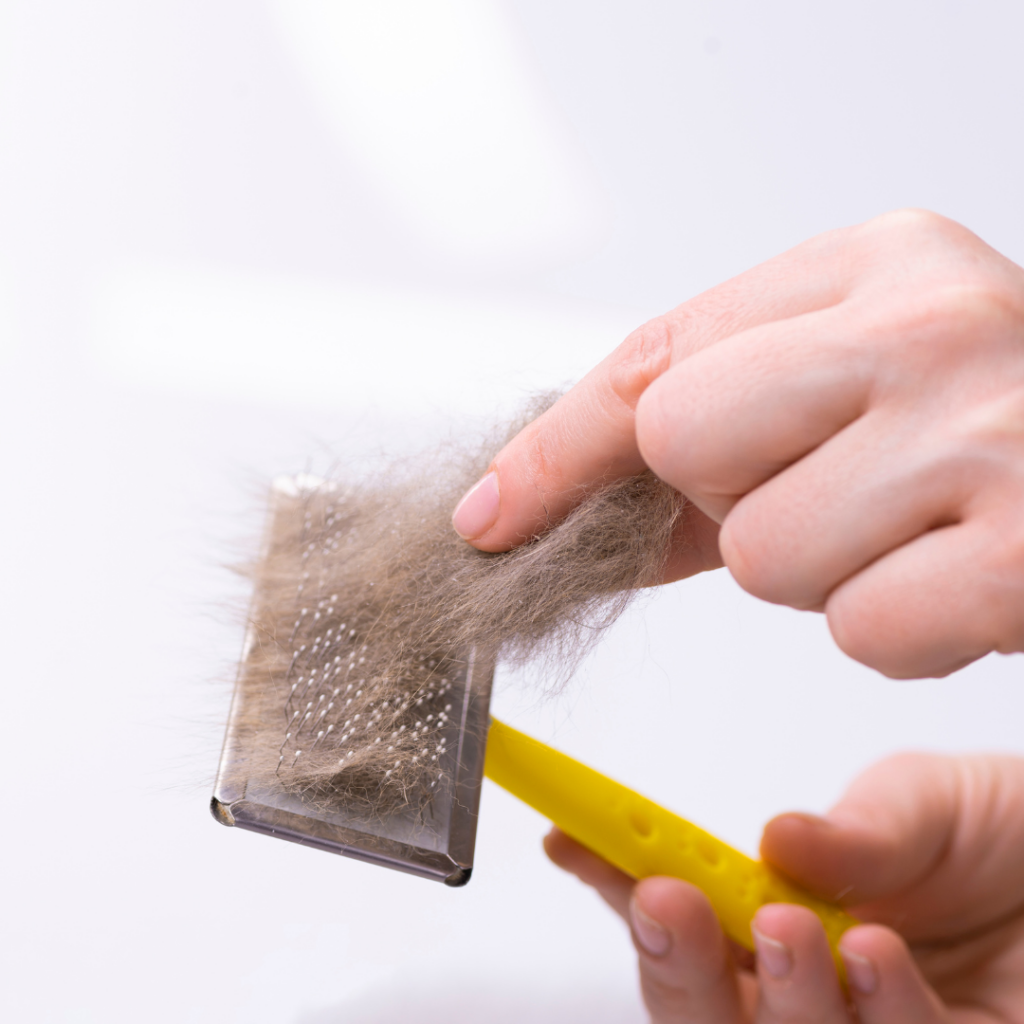
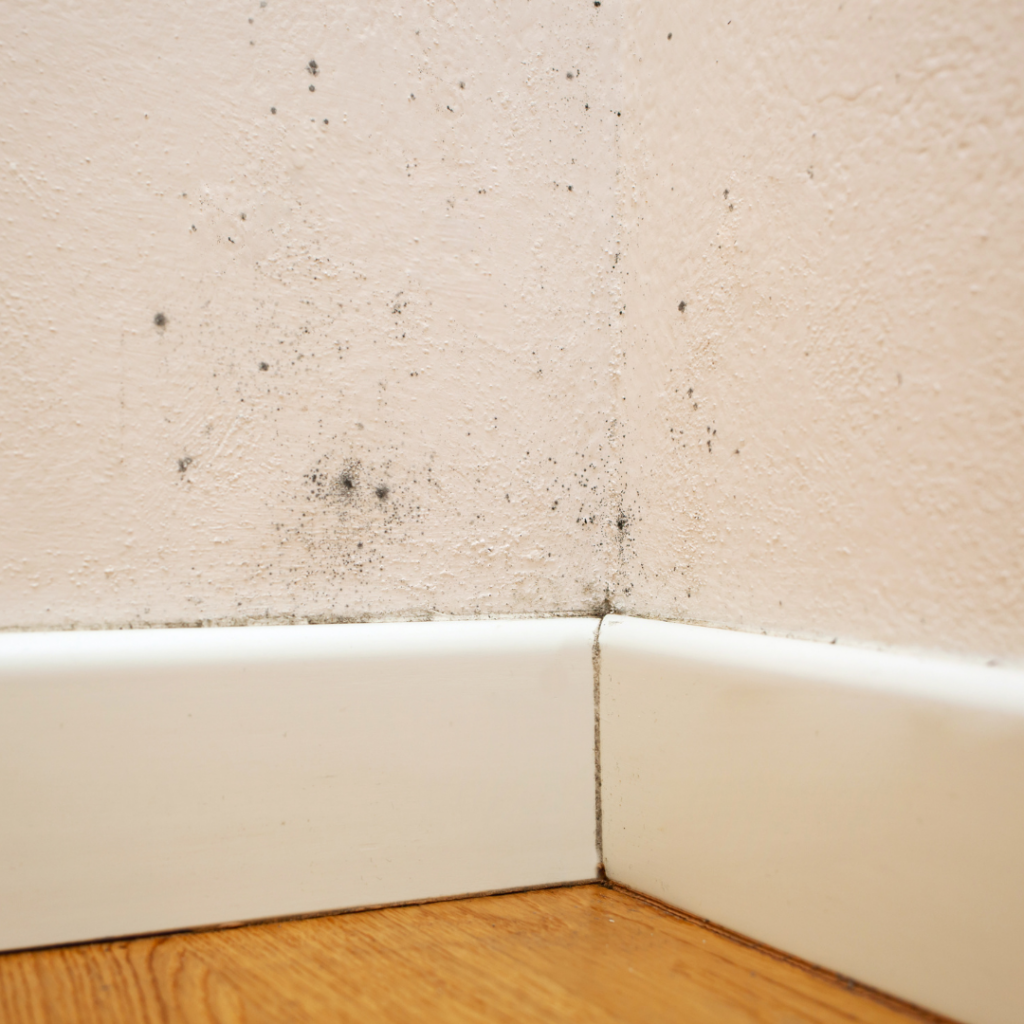
Benefits of Using Air Purifiers
Improved respiratory health: HEPA filters in air purifiers capture various allergens that pollute our air. Cleaner air can be especially beneficial for people with respiratory health conditions.
Enhanced comfort and well-being: They help to reduce dust, smoke and cooking odors, creating a more pleasant living environment.
May reduce the spread of airborne bacteria: Some air purifiers can help remove airbone pathogens from spreading around our home.
Key Differences Between Dehumidifiers vs. Air Purifiers
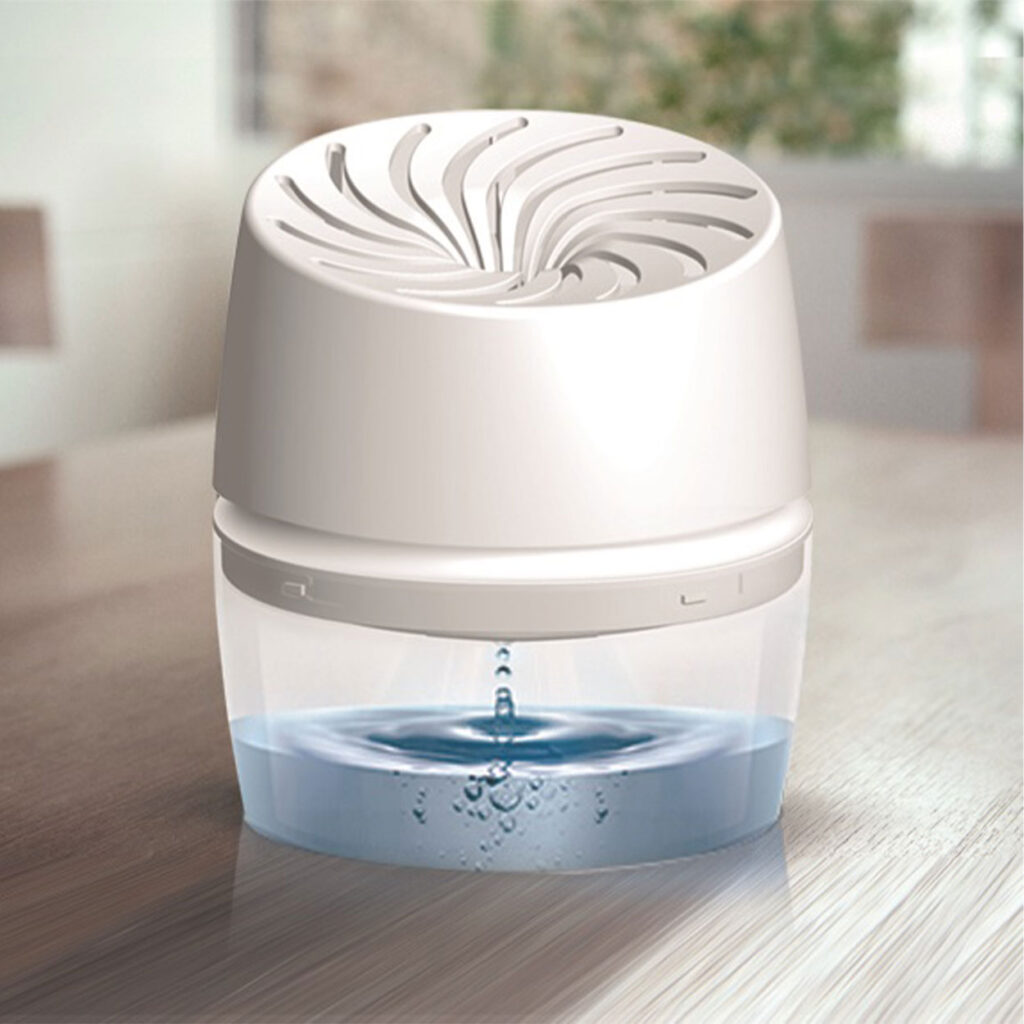
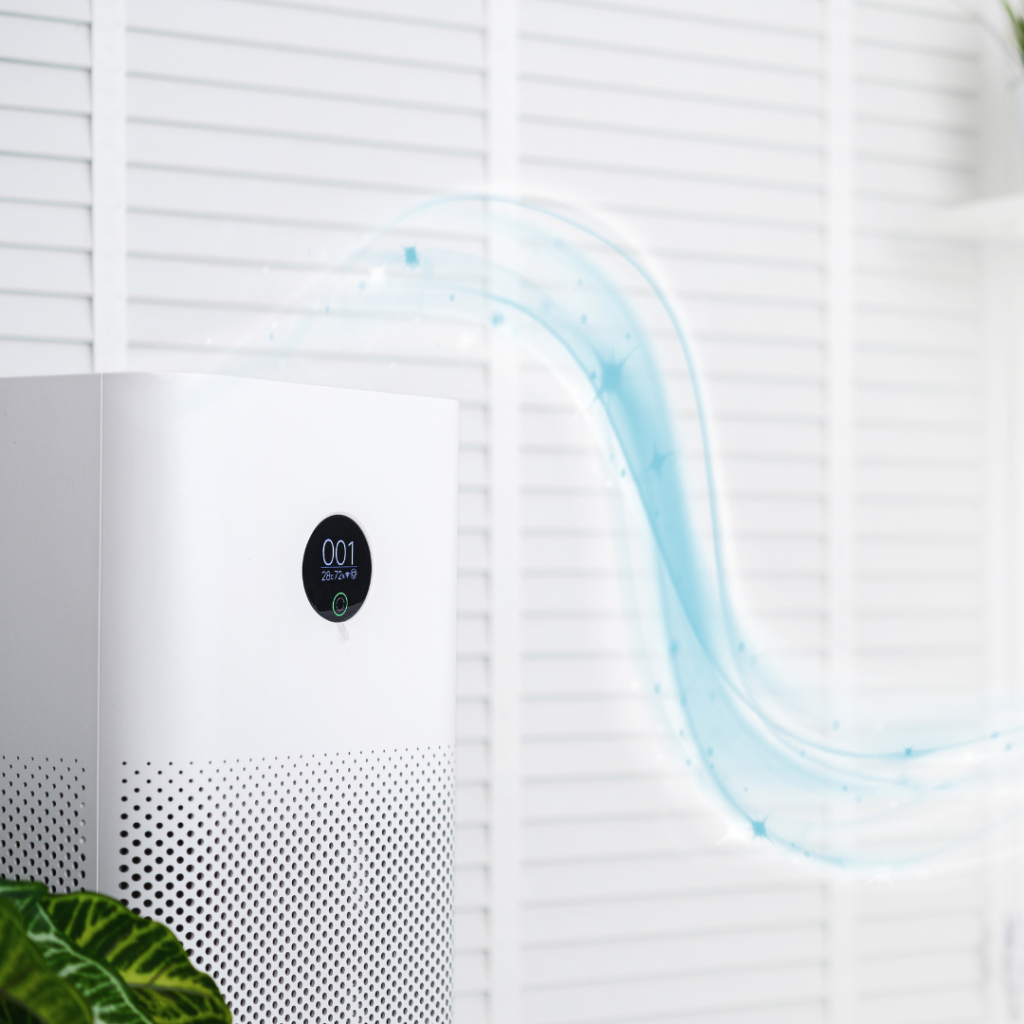
While both play a pivotal role in improving overall indoor air quality, they both target different aspects of the problem. Here's a quick breakdown of the key differences.
What They Remove
Dehumidifiers remove excess moisture from the air, preventing mold growth, dust mite proliferation and structural damage.
Air purifiers capture airborne particles and pollutants like dust, allergens, pollen, pet dander and smoke.
How They Work
Refrigerant models of dehumidifiers condense moisture from the air using cool coils, similar to a fridge. While desiccant models absorb moisture with a material like silica gel requiring heating to release the water vapor.
You can also get versions of a dehumidifier such as the Unibond Aero 360 Compact Moisture Absorber that uses no energy and produces no noise.
HEPA filter air purifiers capture particles as small as 0.3 microns, removing most allergens and dust. It's counterpart, activated carbon filter air purifiers absorb gases and odors like smoke.
Maintaining Your Dehumidifier and Air Purifier
Just like any of the hardworking applicances in our homes, your dehumidifier and air purifier need regular TLC to perform at their best. Here's a guide on how you can get the best out of them!
Dehumidifier
- Empty the water tank - Depending on humidity levels and usage, empty the tank daily or every few days. Stagnant water can breed mold and bacteria, defeating the purpose of clean air.
- Keep the vents clear - Ensure good airflow by keeping the inlet and outlet vents free of obstruction.
- Clean the air filter and coils - Dust and dirt build up will lead to a reduced performance from your dehumidifier. Make sure to keep them clean!
Air Purifier
- Replace filter regularly - Follow the manufacturers recommended filter replacement schedule. As a rough guide, it's every 2-3 months for HEPA filters and 6-12 months for carbon filters.
- Keep the unit clean - Gently clean the exterior of the machine with a damp cloth to reduce dust build-up. Never use harsh chemicals or submerge it in water.
Ultimately, the best choice depends on your specific needs and air quality concerns. By understanding the differences between dehumidifiers and air purifiers, you can make an informed decision and create a healthier and more comfortable living environment.
